|
Clinton's early failure to make good on either the
promise of health care reform or the promise to allow open
homosexuality in the military was reminiscent of his first failed term
as Arkansas governor. To stage a political comeback in Arkansas after
being voted out of office, he had moved to the political center in his
policies to get himself re-elected as governor. So thus too in the
White House he had moved to the political center after the 1994
political rebuke.
Even before the 1994 vote, he had begun
the journey to the center. In his first year in office he supported the
ratification of the new North American Free Trade Agreement (NAFTA)
with Canada and Mexico, which opened up American economic borders
considerably to both neighboring countries. Actually, the Agreement had
been the work of his predecessor, Bush, who signed the Agreement just
before leaving office in December of 1992. But Clinton must be given
credit for coming up against strong opposition from his own Democratic
Party in his pushing for Congress's ratification of the NAFTA treaty.
The Democrats were very sensitive to the intense opposition of the
American labor unions, always major supporters of the Democratic Party,
which claimed (along with Ross Perot) that this would undercut both
American labor and the American economy. As time would soon reveal,
things economically turned out to be quite the opposite!
Clinton moved to deregulate the banking
industry (pleasing Republicans) at the same time supporting the
expansion of low-income mortgages through Fannie Mae (FNMA or Federal
National Mortgage Association) and Freddie Mac (FHLMC or Federal Home
Loan Mortgage Corporation) government-subsidized lending (pleasing
Democrats).
Another area that moved Clinton to the
political center was welfare reform. This was a big piece of Gingrich's
Contract with America program, and after the Republican sweep of
Congress in 1994 Gingrich's Republicans put forward one, then another,
measure to cut back on the lifetime recipients of government welfare,
both efforts vetoed by Clinton. What was being proposed by Gingrich was
the idea of "workfare" rather than welfare, that is, finding paths and
encouraging welfare-dependent mothers (who vastly dominated the welfare
category) to train and take jobs that would provide better funding than
just the flow of cash support coming from federally-backed local
welfare agencies. And it would free them from this welfare trap of
perpetual dependency on government support.
Gingrich, frustrated with Clinton's
vetoes, finally sat down with Clinton to negotiate a bill that both
could live with (and both could take credit for),2
which led finally to the passing of the Personal Responsibility and
Work Opportunity Reconciliation Act of 1996. This gave states (which
had been compelled by Federal Court decisions to follow
"non-discriminatory" criteria in their welfare programming) more
flexibility in their use of federal welfare funding, such as
Wisconsin's workfare program exemplified, by setting job training and
employment requirements in accompaniment to receiving public welfare.
Under the new law, federal subsidies would require that at least 50
percent of that funding went to the workfare principle rather than the
former straight-welfare programming, and in any case have a limit (five
year maximum) on the amount of time a person could continue to receive
welfare funding.
Whereas the vast majority of Americans
lauded this measure, there were critics who complained that this would
simply clear the welfare rolls, and leave former welfare recipients
destitute. Actually, some welfare recipients seemed beyond help and
found themselves pinched by the new program. But others took the
opportunity to use welfare funding to gain job training and employment,
which broke them free from the welfare trap. Statistics justified both
sides of the argument as to whether this act helped or hurt the poor.3
2A
national election was coming up and Clinton knew that a third veto
would greatly work against him and his Democratic Party. What is
interesting is how, after passage of the law in August (1996), Clinton
then went on to take as much personal credit as possible for this new
"breakthrough" in welfare programming!
3Ultimately
in 2012, Obama offered the states a waiver, granting them the option of
no longer having to follow the 50 percent workfare requirements of the
1996 law, allowing them to be able to return to straight welfare
support, that is, without having to impose any job-training or
employment requirements.
| 
 Gingrich's "Republican
Revolution" – 1994!
Gingrich's "Republican
Revolution" – 1994! Clinton, the "Comeback Kid," moves to the political center
Clinton, the "Comeback Kid," moves to the political center Economic/technological development
Economic/technological development





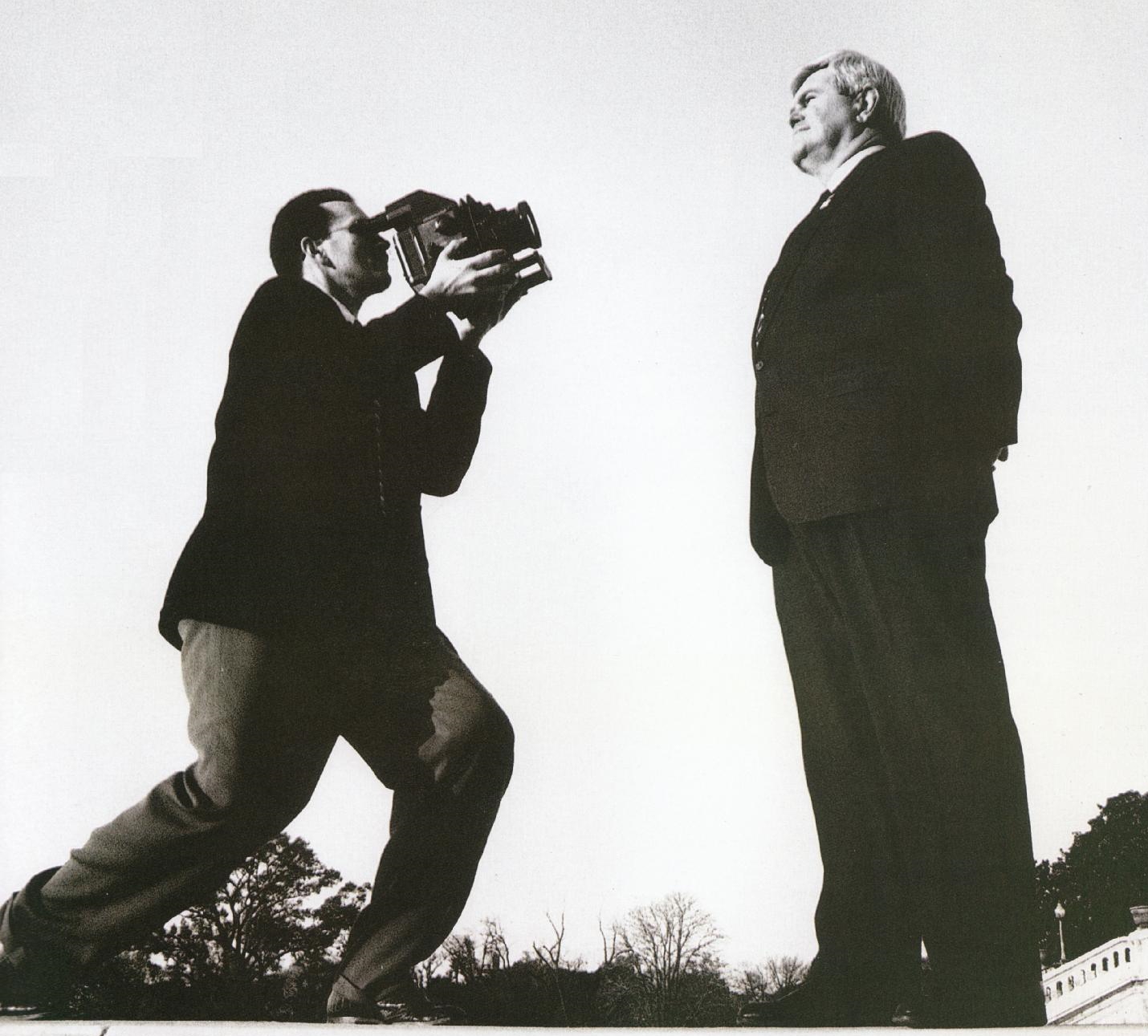
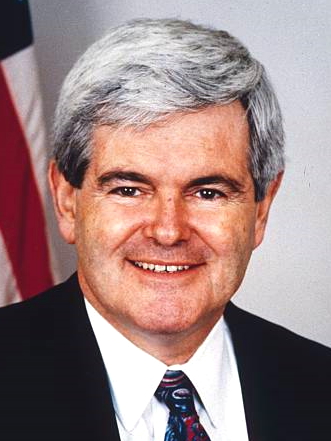
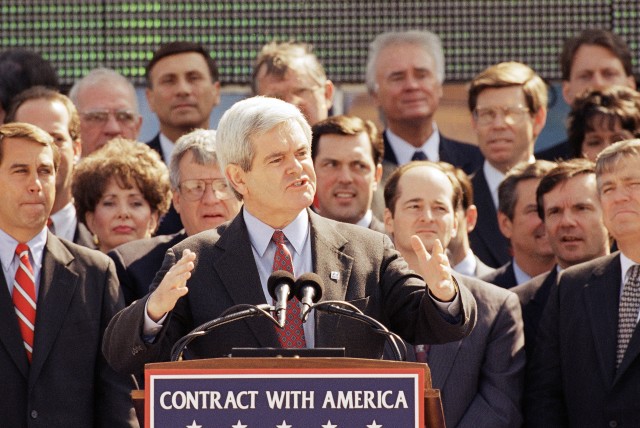
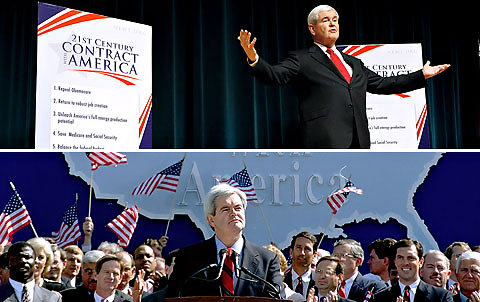
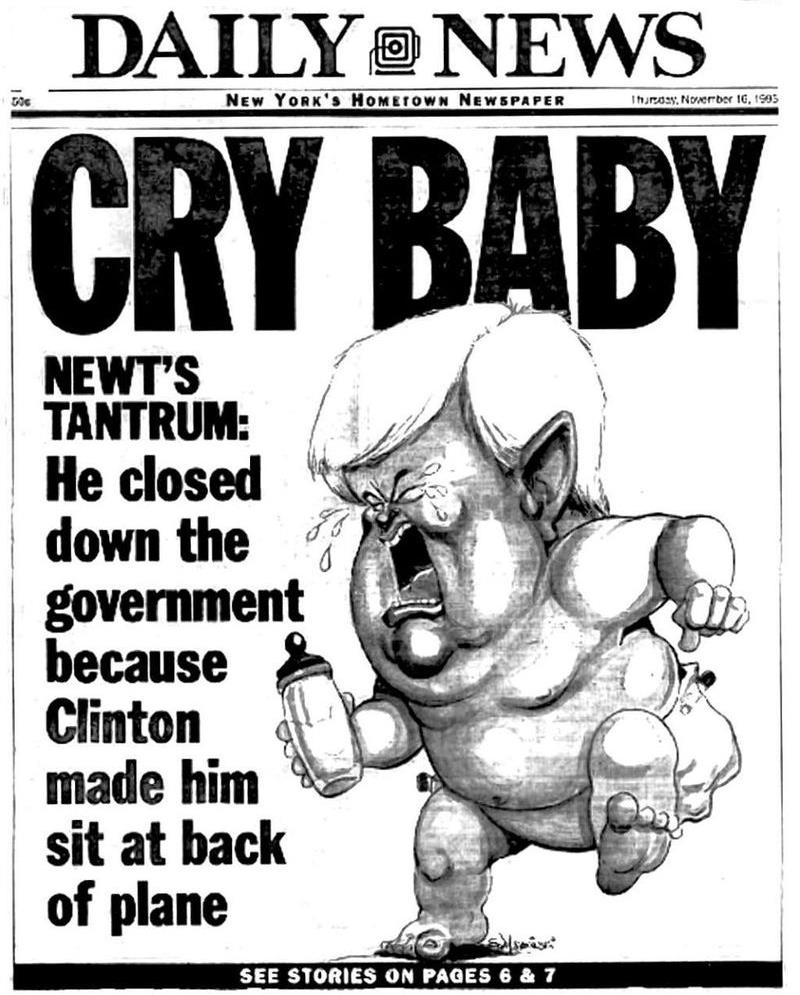
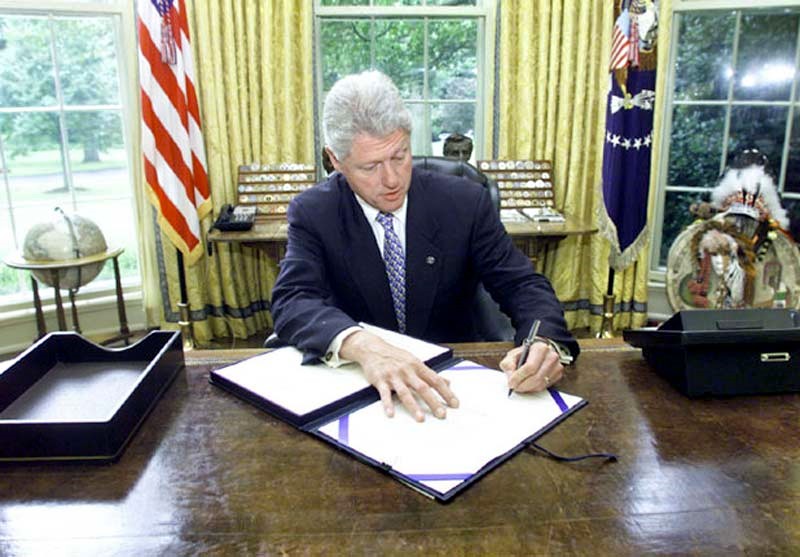
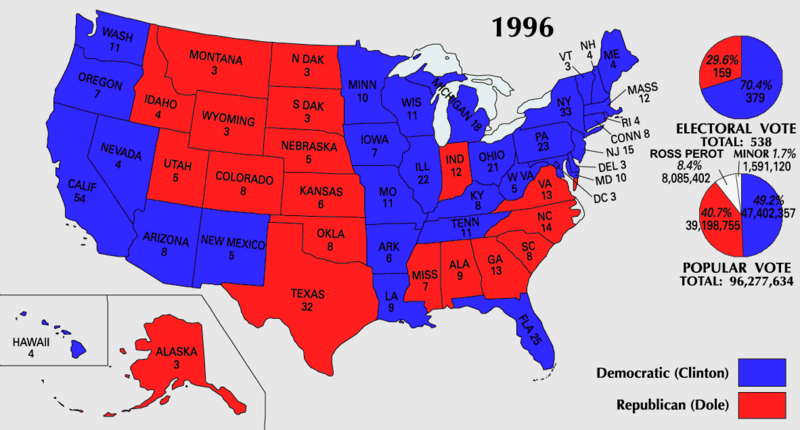


 Miles
H. Hodges
Miles
H. Hodges